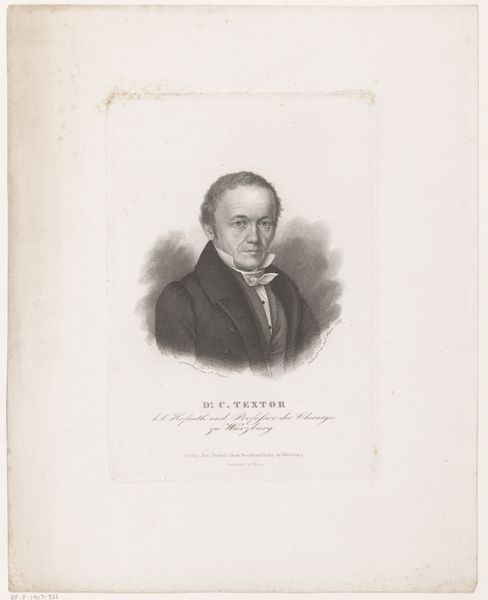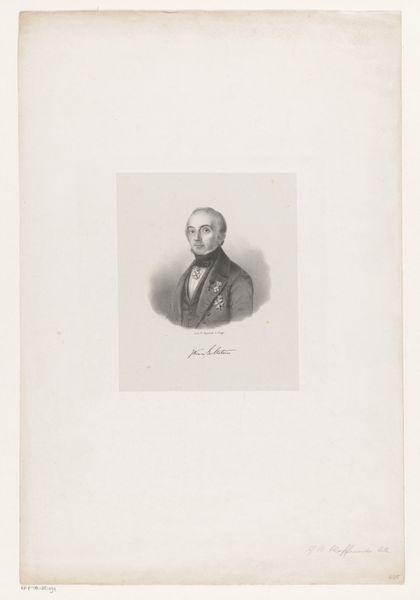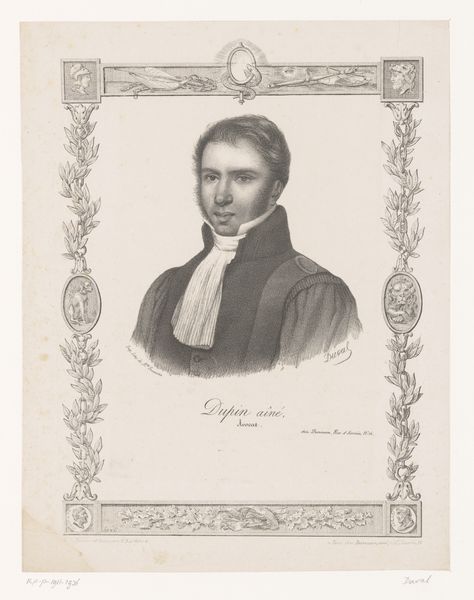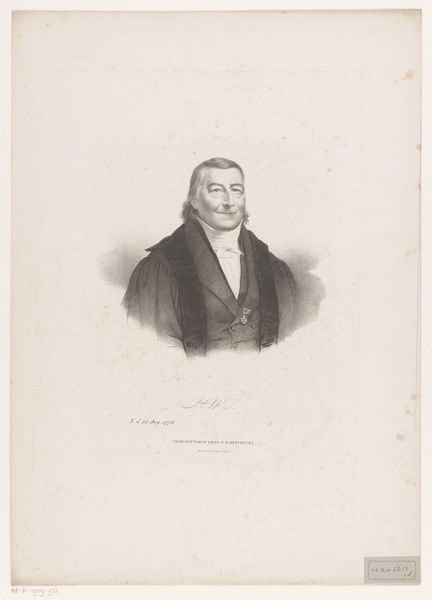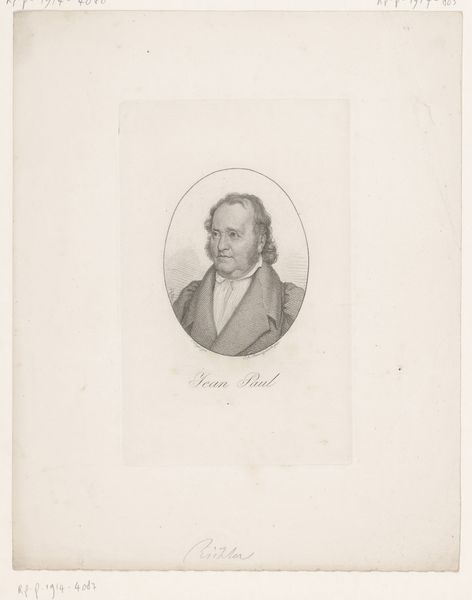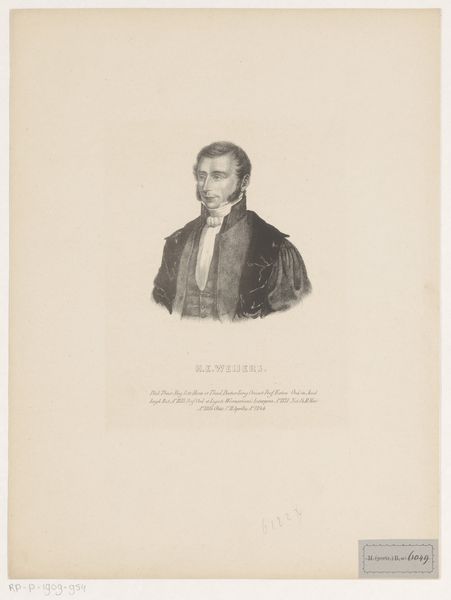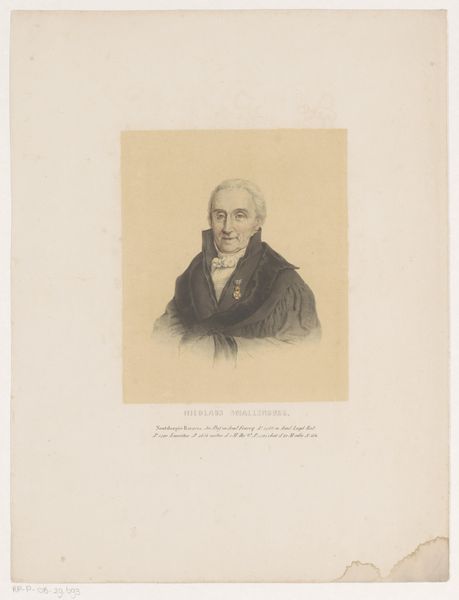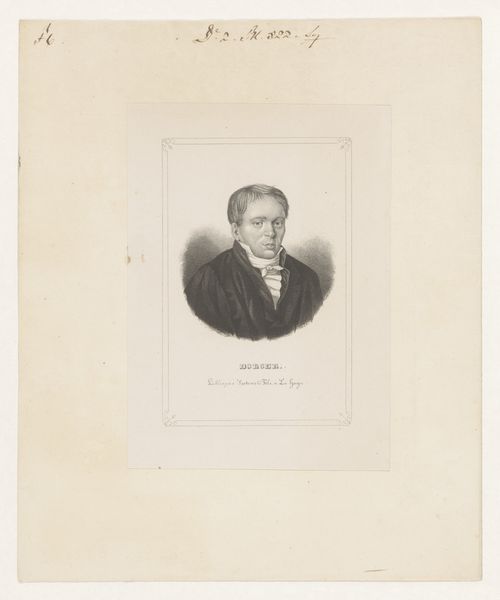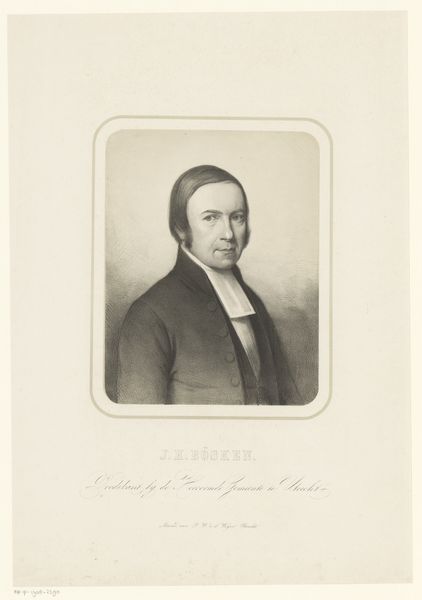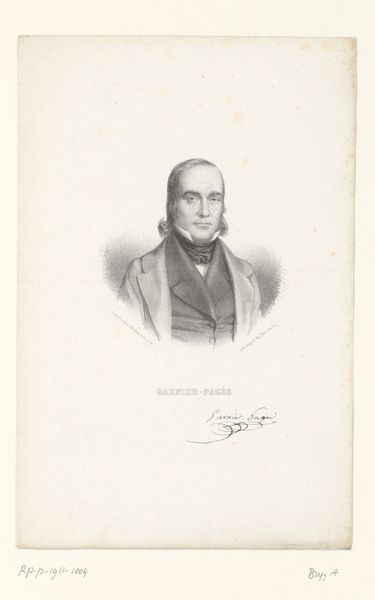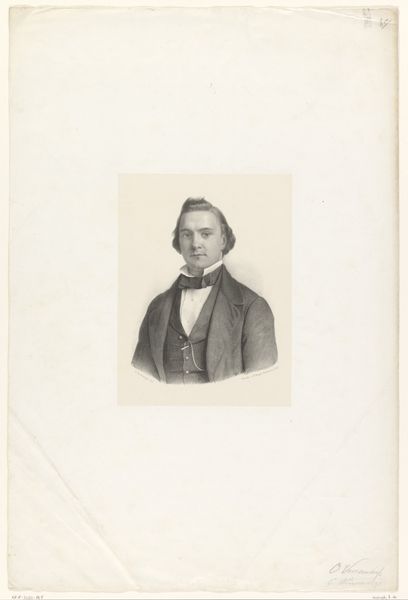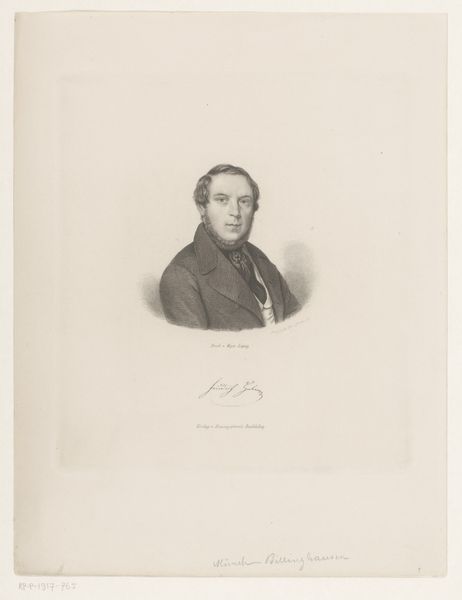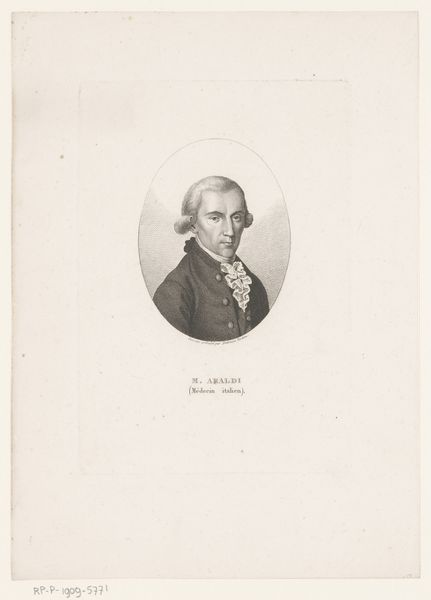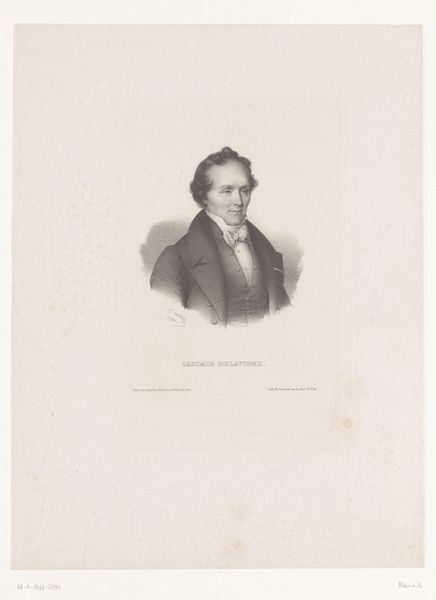
print, engraving
#
portrait
#
pencil drawn
# print
#
portrait reference
#
pencil drawing
#
portrait drawing
#
history-painting
#
engraving
#
realism
Dimensions: height 519 mm, width 352 mm
Copyright: Rijks Museum: Open Domain
This is an anonymous portrait of Abraham Rutgers, created with engraving, a printmaking process that demands meticulous skill. The engraver would have used a tool called a burin to carve lines directly into a metal plate, likely copper. Ink is then applied to the plate, pushed into these grooves, and the surface is wiped clean. When paper is pressed against the plate, the image transfers, resulting in a print with sharp, precise lines. Engraving was widely used for reproducing images and texts, playing a crucial role in disseminating information and shaping public opinion. The level of detail achieved speaks to the engraver's expertise, but also to the societal value placed on accuracy and refinement during that time. Considering its function as a mode of reproduction, this portrait of Abraham Rutgers prompts us to think about the skilled labor involved in its making, and its place within a broader landscape of image production and consumption. It pushes us to broaden our understanding of art history, encompassing these more quotidian forms of image-making.
Comments
No comments
Be the first to comment and join the conversation on the ultimate creative platform.
